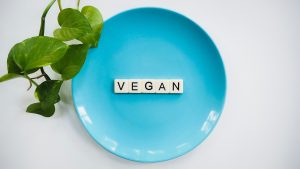 If you use the nutritional services of Rising Fitness Gym in Houston, TX, you’ll get a diet that’s based on your needs and goals. It might be a vegan diet, vegetarian, semi-vegetarian, pesco-vegetarian or omnivorous diet. What’s the difference? Vegan, vegetarian and semi-vegetarian diets focus on a plant based diet with vegetarians and semi-vegetarians including animal products like eggs or milk. There are also pescatarian diets that include seafood and omnivorous ones that eat both plants and animals. The vegan diet is the strictest one that only includes plants and the hardest one to follow.
If you use the nutritional services of Rising Fitness Gym in Houston, TX, you’ll get a diet that’s based on your needs and goals. It might be a vegan diet, vegetarian, semi-vegetarian, pesco-vegetarian or omnivorous diet. What’s the difference? Vegan, vegetarian and semi-vegetarian diets focus on a plant based diet with vegetarians and semi-vegetarians including animal products like eggs or milk. There are also pescatarian diets that include seafood and omnivorous ones that eat both plants and animals. The vegan diet is the strictest one that only includes plants and the hardest one to follow.
A vegan diet provides loads of nutrients.
Plants contain loads of nutrients and phytonutrients. Legumes, seeds, nuts, fruits and vegetables all contain antioxidants in the form of phytonutrients. Plants also contain magnesium, potassium, folate, vitamins A, E and C. If you’re vegan—strictly plant based—getting all the essential amino acids is trickier. Most protein sources in plants aren’t complete. Luckily, you can pair them to ensure success and you don’t even have to eat them at the same time, just within the same day.
A vegan diet can help you lose weight and prevent serious conditions, such as type 2 diabetes.
Many people come to the gym to get healthier and often to lose weight. Studies comparing people on different types of diets show vegans tend to be thinner than those who aren’t. One study compared vegan dieters to those on traditional control diets and showed they lost about ten pounds more in 18 weeks. Even eat-until-full vegan diets were more successful. Whether it was the weight loss or the switch to veganism, there’s a distinct benefit for people with insulin resistance. It not only made people more insulin sensitive, it reduced the risk of type 2 diabetes by 78%. In diabetics on a vegan diet, it improved kidney function, too.
Vitamin B12 and other vitamins may be missing or low in a vegan diet.
Not only are getting complete proteins a problem, so is getting adequate vitamin B12. Vitamin B12 is necessary for good heart, nerve and muscle health. It’s an important nutrient to keep your metabolism running properly. There are foods supplemented with B12 to help solve that problem. Another nutrient often missing is vitamin D, which is necessary for a strong immune system, healthy bones and strong teeth. While it’s easy to get adequate vitamin D from the sun, since the body synthesizes it with exposure to the sun, during the winter it’s not that easy in more northern latitudes. Mushrooms and fortified soy or nut milk can provide it.
- We focus on your individuality, so not all diets may be right for you. Learning more about the nutrients in food is what’s important and listening to your body, personal preferences and needs. No one diet is right for everyone.
- You can get complete proteins in food like quinoa, hempseed and buckwheat. However, you still need to balance omega-3 and omega-6 fatty acids, just as non-vegans should. Flaxseed, chia and walnuts are omega-3 sources.
- One danger when starting a vegan diet is getting too much fiber at once. Increasing fiber too fast can cause bouts of gas until your body adjusts to the increase. Focus on getting adequate B12, zinc, iodine, iron and calcium.
- Studies on arthritis pain show that vegan diets can help, particularly raw food vegan diets, which are rich in pre and probiotics. It helps minimize joint swelling, pain and stiffness from rheumatoid arthritis.
For more information, contact us today at Rising Fitness Gym
